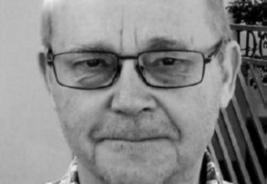
Dr Dick Forslund presented a seminar as part of the Labour Studies seminar Series, entitled " State resources, Eskom and the PIC: Alternatives in the Debt Crisis" on the 31st July 2019
The series is run by the Neil Aggett Labour Studies Unit (NALSU) and the Departments of Sociology and Industrial Sociology, History, and Economics & Economic History
The Paper: On Wednesday 23 July, Finance Minister Mboweni tabled a Special Appropriation Bill adding R26bn this year and R33bn next year to the R23bn per year that was already allocated in the 2019/20 national budget to save Eskom. This is part of a pattern of Treasury supporting Eskom and other State Owned Enterprises (SOEs) in financial crisis from the national budget. The Finance Minister announced that higher debt service cost will follow because both government and Eskom will have to borrow more.
This is unacceptable and must be contested, rigorously. Tens of millions of ordinary public service users and dependents will lose out from this choice of policy in an already painful and dangerous situation. Budget austerity must be reversed, not sharpened.
Given the obvious alternative, this policy was irrational already in February when the Treasury integrated a ten year Eskom rescue plan in the budget at the cost of R230bn. It is, arguably, also unconstitutional, given that the Government’s Constitutional mandate to gradually improve the lives of all “within its available resources”.
The choice of policy illustrates however, that a resource available to the government in an objective sense can be politically or even ideologically disregarded, or seen to be politically available for one purpose but not for the other. This is the case with the Government Employee Pension Fund (GEPF), which funds are managed by the Public Investment Corporation (PIC) that is under investigation for patronage and corruption.
The Speaker: Dr Dick Forslund was born in Sweden into a working class family, and, like his father, was a metal worker and union activist. He left his job in 1990 for a post as journalist and treasurer at the socialist weekly 'Internationalen'. Starting in 1996, he took advantage of Sweden’s free education policy and enrolled in the School of Business at Stockholm University, obtaining his BSc in Economics in 1999 and his PhD in Business Administration in 2008, after working three years as back office accountant. Forslund has had a long association with South Africa through Brian Ashley, who he met in the 1980s while the latter was in exile. In 2010, Forslund took up a senior economist post at the activist think-tank Alternative Information & Development Centre in Cape Town. He is notable for his opposition to the excesses of the mining industry (notably in Rustenberg and Xolobeni), to austerity macroeconomics, and to right wing propaganda against decent work. Forslund is a son in law of the Amadiba coastal community in Mbizana, Pondoland. He stays on the Wild Coast with his South African wife and son, who was born in Cape Town in 2013.
